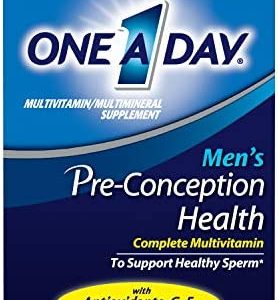
Part 2
We continue to see acts of violence perpetrated by males. We know that depression turned inward can lead to suicide and turned outward can turn to violence. Most depressed people are neither suicidal or violent, but understanding depression can help save lives. In Part 1, I described my life-long interest in understanding depression which began when my father became increasingly depressed when he couldn’t make a living supporting his family, took an overdose of sleeping pills, and was committed to a mental hospital. I described our Moonshot Mission for Mankind and the importance of finding ways to treat, cure, and prevent depression.
I noted that the World Health Organization (WHO) says,
“Depression is a leading cause of disability worldwide and is a major contributor to the overall global burden of disease. Approximately 280 million people in the world have depression and over 700,000 people die due to suicide every year.”
Following my father’s commitment to Camarillo State Mental Hospital, my uncle began visiting my father and my mother wanted me to go with him. She reasoned that seeing me might help my father recover more quickly. But very little helpful treatment was going on in 1949 when I began my visits. Ironically, years later I found an entry in one of my father’s journals that he had gone to see the movie, “The Snake Pit” starring Olivia de Haviland who had been committed to a mental hospital. The movie had been released in 1948 and partially filmed at Camarillo State Mental Hospital, which was located just north of our home in Los Angeles.
At the time, “treatment” involved heavy doses of psychiatric medications, electro-shock treatments, and even lobotomies for patients who didn’t respond to the “help” they were being given. After a year of visits my father was clearly getting worse, but my mother and uncle were told by the doctors he needed to stay longer and might need “treatments” for the rest of his life.
Even as a six-year-old child, it was clear that my father was not getting better and my visits weren’t helping. The doctors were convinced they knew what was wrong with my father and he needed to be locked up and treated for his own good. I knew I couldn’t help him and the trauma of going weekly to “the snake pit” was making me sick. After a year of visits, I refused to go. My father was forced to stay, until one day, he told my uncle, who continued with his weekly visits, that he needed to get stamps at the post office. Instead of getting stamps, he walked away and never returned. My uncle had to report to the staff that he had disappeared.
I tell the full story of my father’s healing journey and my own in my book, My Distant Dad: Healing the Family Father Wound. Here, and in future articles, I’ll share what I’ve learned over the years and the program I’ve developed to help depressed men and their families.
The Evolution of a New Approach for Effectively Addressing the Realities of Depression
When my father was hospitalized in 1949, the psychiatric establishment believed that a person who took an overdose of sleeping pills must be crazy and should be locked up for his own good until he regained his sanity. What passed as treatment was primitive. Over the years things have improved, but the mainstream focus in the mental health field remains on what is wrong with a person. The assumption was that depression, and other common mental disorders, is simply a kind of brain disease that could be treated once the right diagnosis was agreed upon.
Even as I child, I was more interested in what happened to my father that caused his despair than what diagnosis he was given. After growing up, attending college, and going on to earn a master’s degree in Social Work and a Ph.D in International Health, I had a different understanding of mental illness and what was needed for mental health. My approach focuses less on what was wrong with the person and more on what happened to them, what life experience and trauma contributed to the symptoms we call “mental illness.”
This approach recognizes that there are genetic and biological aspects of depression and other illnesses, but they can’t be fully understood, treated, cured, or prevented without looking at these problems more broadly to include interpersonal, social, cultural, and spiritual aspects.
Charles Whitfield, M.D. is one of the world’s leading experts on mental health and illness. In his book, The Truth About Depression: Choices for Healing, Dr. Whitfield, says,
“The truth about depression is that it is not as advertised. It is not what some special-interest groups tell us. It is not the single, simple disorder that drug companies and some mental health groups may claim. It is not simply a genetically transmitted disorder of brain chemistry. It is not a brain serotonin problem. And it does not reliably respond to antidepressant drugs. And these drugs are not the only available recovery aid.”
I agree with Dr. Whitfield’s assessment. It is consistent with my own experience in working with men and women over the last fifty years.
Where in the World is Depression Not a Major Problem?
Although depression is widespread throughout our modern world, there are places where it is virtually unknown. Dr. Stephen Ilardi, author of The Depression Cure: The 6-Step Program to Beat Depression Without Drugs, notes that
“modern-day hunter-gatherer bands—such as the Kaluli people of the New Guinea highlands—have been assessed by Western researchers for the presence of mental illness. Remarkably, clinical depression is almost completely nonexistent among such groups, whose way of life is similar to that of our remote ancestors.”
Dr. Ilardi goes on to describe the findings of anthropologist Edward Schieffelin who lived among the Kaluli for nearly a decade and carefully interviewed over two thousand men, women, and children regarding their experiences of grief and depression.
“He found only one person who came close to meeting our full diagnostic criteria for depressive illness,”
Dr. Ilardi reported.
Why Our Present Approach to Understanding and Treating Depression is Misguided
There is an old problem in the way we treat people with depression and other illnesses. When a treatment approach isn’t working, there is a tendency to blame the individual seeking help rather than looking at the larger system. When one anti-depressant isn’t working, doctors will try another. When that doesn’t work, they look at the patient and question their desire to get well.
Let me be clear, I think there are times medications can help people. I took medications for my depression and they were helpful. But when medications aren’t working or when a problem continues to get worse despite, billions of dollars spent on various treatment approaches, we need to look at the larger system and ask what is wrong with the system, not what is wrong with the individual.
We are told that men are resistant to getting help for depression and men are often shamed because they won’t get help. It is certainly true to many men fear seeing doctors and many resist getting treatment. It is also true that there is stigma attached to seeking help for “mental” problems and men often are taught that it is unmanly to admit they are unhappy and depressed or to ask for help. But it is also true that some of male resistance to getting treatment may be that they realize that there is something wrong with the system, that accepting that we are “mentally ill” may cause us more harm than help.
When we see that depression is getting worse and worse, impacting people at younger and younger ages, we have to look for solutions outside the individual. When we learn that depression is almost unheard of in indigenous cultures, we have to ask what they are doing right and what may be wrong with our “civilized” way of life.
I address these issues in my book, The Warrior’s Journey Home: Healing Men, Healing the Planet. In examining our evolutionary history, I noted that our human lineage goes back 2 million years and for more than 99% of that time we lived as hunter-gatherers. Although it was a challenging way of life, it was a life without the stresses and strains that contribute to heart disease, cancer, diabetes, and depression.
In The Warrior’s Journey Home, I quoted my colleague, biologist Paul Shepard, author of The Tender Carnivore and the Sacred Game who offers a clear description of our lives through most of our human history and challenges the myth that our present way of life is always better than what we experienced in the past:
“Although it has long been fashionable to describe it so, the world of the hunting and gathering peoples is not a vale of constant demonic threat and untold fears. It is a life of risk gladly taken, of very few wants, leisurely and communal, intellectual in ways that are simultaneously practical and esthetic. Most pertinent to our time, it is a life founded on the integrity of solitude and human sparseness, in which men do not become a disease on their environment but live in harmony with each other and with nature.”
As Dr. Ilardi reminds us,
“We were never designed for the sedentary, indoor, sleep-deprived, socially-isolated, fast-food-laden, frenetic pace of modern life.”
Rather than viewing depression as a brain malfunction impacting a small percentage of individuals living in an otherwise healthy environment, I’ve come to see that depression is a natural response to anyone who is living in a dysfunctional society.
Depression is not the problem and it won’t be solved within the system that created it. Depression is a wake-up call, reminding us that our current way of life is destructive to men, women, children, and the planet we all share. The problem is our disconnection from the natural world and our mistaken belief that humans were above nature. As we are told in our modern religion.
“And God said, ‘Let us make man in our image, after our likeness: and let them have dominion over the fish of the sea, and over the fowl of the air, and over the cattle, and over all the earth, and over every creeping thing that creepeth upon the earth.’”
In Part 3, I will continue our exploration and share a program of healing that not only can help heal depression in men, but can help us heal our separation from nature, from ourselves, and from each other. If you haven’t already subscribed to my free newsletter, I invite you to join us and receive my weekly articles as well other news about how you can live long and well.
The post Why Healing Men’s Depression Will Do More Good Than Curing Cancer – Part 2 appeared first on MenAlive.
-
Virility Supplements
ONE A DAY Men’s Pre-Conception Health Multivitamin to Support Healthy Sperm
$14.99




